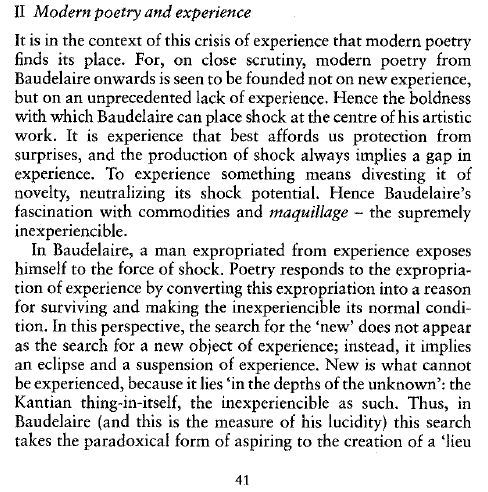#Giorgio Agamben
Text
'What have I learned from poetry? That a political task and a political intensity can be conveyed solely through language, and that this task—although it is thoroughly commonplace—cannot be assigned by anyone, it can only be assumed by the poet in lieu of an absent people. And that nowadays no other possible politics exists, because it is solely through the poetic intensification of language that the absent people—for an instant—appears and comes to the rescue.'
--Giorgio Agamben, What I saw, heard, learned..., trans. Alta L. Price
23 notes
·
View notes
Text
Dal vivere insieme: che l’esistenza dell’altro è un enigma che non può essere sciolto, ma solo condiviso. La condivisione di questo enigma, gli uomini la chiamano amore.
Giorgio Agamben
26 notes
·
View notes
Text
La memoria es uno de los paradigmas de la exigencia. Benjamin escribió una vez que en el recuerdo hacemos la experiencia de lo que parece absolutamente concluido –el pasado– y de repente se vuelve incompleto. La memoria es algo así como una exigencia, ya que le restituye al pasado su incompletud y de algún modo lo vuelve todavía posible para nosotros. La posición leibniziana del problema de la exigencia [«toda posibilidad exige existir»] aquí se invierte: lo que exige existir no es lo posible, sino lo real, lo que ya ha sido exige su propia posibilidad. ¿Y qué es el pensamiento sino la capacidad de restituirle posibilidad a la realidad, de desmentir la falsa pretensión de la opinión de basarse solamente en los hechos? Pensar significa sobre todo percibir la exigencia que tiene lo real de volverse posible, hacer justicia no solo a las cosas, sino también a sus lágrimas.
—Giorgio Agamben, «Sobre el concepto de exigencia» en ¿Qué es la filosofía? Traducción de Mercedes Ruvituso.
18 notes
·
View notes
Quote
Anarchy [...] is first and foremost the radical disavowal not so much of the state or simply of administration but rather of power’s claim to make the state and administration coincide in the government of men. It is against this claim that the anarchist fights, in the name ultimately of the ungovernable, which is the vanishing point of all community among men.
Giorgio Agamben, “On Anarchy Today”
83 notes
·
View notes
Text

Ingeborg Bachmann, (2002), Quel che ho visto e udito a Roma, Foreword by Giorgio Agamben, Text by Jörg-Dieter Kogel, Translations by Kristina Pietra and Anita Raja, «Quodlibet Storie» 12, Quodlibet, Macerata, 2022
#graphic design#book#cover#book cover#ingeborg bachmann#giorgio agamben#jörg dieter kogel#kristina pietra#anita raja#quodlibet storie#quodlibet#2000s#2020s
16 notes
·
View notes
Text
I wonder what Agamben would think about Paul Blart Mall Cop 2. The privatization of security and all that. At least ideologically, he would prefer PB 1 because Blart keeps the fbi from getting involved, which I suppose Agamben would think is good. Pb2 is more complicated though, for a few reasons. 1. Paul Blart isn't in the clock, he's just kind of there. 2. The privatization of security is directly tied to the commercialization of that, and essentially gatekeeping security technology to "professionals", which I think agamben would consider to just be a different monopolization on security (though perhaps I'm giving him too much credit here). 3. Id be interested to hear his thoughts on the inter-security guard. Conflict between Blart and Eduardo.
Unfortunately, this has me wanting to read more Agamben.
#giorgio agamben#biopolitics#paul blart mall cop 2#till death do us blart#im listening to death blart again :(#death blart
6 notes
·
View notes
Text
Dal vivere insieme: che l’esistenza dell’altro è un enigma che non può essere sciolto, ma solo condiviso. La condivisione di questo enigma, gli uomini la chiamano amore.
Giorgio Agamben
10 notes
·
View notes
Text
"Which house is burning? The country where you live, or Europe, or the whole world? Perhaps the houses, the cities have already burned down-who knows how long ago?- in a single immense blaze that we pretended not to see. Some are reduced to just bits of frame, a frescoed wall, a roof beam, names, so many names, already eaten by the flames. And yet we cover them so carefully with white plaster and false words that they seem intact. We live in houses, in cities burned to the ground, as if they were still standing; the people pretend to live there and go out into the streets masked amid the ruins as if these were the familiar neighbourhoods of times past.
And now the form and nature of the flame has changed; it has become digital, invisible and cold-but exactly for this reason closer still; it encircles and envelops us at every moment."
Giorgio Agamben in 'When the House Burns Down'
10 notes
·
View notes
Text

Giorgio Agamben como "Felipe" en El Evangelio según San Mateo" (1964) de Pasolini.
72 notes
·
View notes
Text


Giorgio Agamben, Infancy and History: The Destruction of Experience, trans. Liz Heron
3 notes
·
View notes
Text
Dai luoghi che hai amato e hai dovuto lasciare: se, come il gigante della favola, ci nascondi il cuore, certo diventi invulnerabile, ma correrai il rischio di dover sempre ricordare – cioè tornare al cuore che avevi voluto nascondervi. E di essere, per questo, nuovamente vulnerabile.
Giorgio Agamben
33 notes
·
View notes
Text
El lenguaje es ontológicamente débil; ello significa que si no desapareciera en la cosa que nombra, en lugar de designarla y revelarla, obstaculizaría su comprensión. Y, sin embargo, en esto reside su potencia particular –en su permanecer desapercibido y no dicho en aquello que nombra y dice–. Ya que, como escribe Meister Eckhart, si la forma por la que conocemos una cosa fuera ella misma algo, nos llevaría a su conocimiento y nos apartaría del conocimiento de la cosa. Pero el riesgo de que el propio lenguaje se perciba como una cosa y de separarnos de lo que debería revelarnos, siempre permanece consustancial al lenguaje. El no poder decirse a sí mismo mientras dice otra cosa, su estar siempre extáticamente en el lugar de otro es la signatura inconfundible y, a la vez, la mancha original del lenguaje humano.
—Giorgio Agamben, «Experimentum vocis» en ¿Qué es la filosofía? Traducción de Mercedes Ruvituso.
14 notes
·
View notes
Text
instagram
5 notes
·
View notes
Text
Varoluş çilelerdeki (edilgilerdeki) yani işaretlerdeki aşkınsal bir yayılmadır. O halde (dile göre sözceler olarak) işaretler, şeyleri saf var oluşları düzeyinde damgalar. On haploüs, “saf varlık” aşkınsal damgalarını var olanlar üzerine basan arcisignatordur [temel-işaretleyendir]. Varoluşun gerçek bir yüklem olmadığını söyleyen Kantçı ilke hakiki anlamım bu noktada gözler önüne serer: Varlık “bir şeyin kavramına eklenebilecek herhangi bir şeyin kavramı” değildir, çünkü, gerçekte, bir kavram değil, bir işarettir. Bu anlamda ontoloji belirlenmiş bir bilgi değil, her bilginin arkeolojisidir, bu arkeoloji, var oldukları için kendiliklere düşen ve bu biçimde onları özel bilgilerin yorumuna sunan işaretleri araştırır.
Giorgio Agamben - Şeylerin İşareti
2 notes
·
View notes
Text
Le singolarità qualunque non possono formare una societas perché non dispongono di alcuna identità da far valere, di alcun legame di appartenenza da far riconoscere. In ultima istanza, infatti, lo stato può riconoscere qualsiasi rivendicazione d'identità - perfino (la storia dei rapporti fra stato e terrorismo nel nostro tempo ne è l'eloquente conferma) quella di una identità statale al proprio interno; ma che delle singolarità facciano comunità senza rivendicare un'identità, che degli uomini co-appartengano senza una rappresentabile condizione di appartenenza (sia pure nella forma di un semplice presupposto) - ecco ciò che lo stato non può in alcun caso tollerare. Poiché lo stato, come ha mostrato Badiou, non si fonda sul legame sociale, di cui sarebbe espressione, ma sul suo scioglimento, che vieta. Per esso, rilevante non è mai la singolarità come tale, ma solo la sua inclusione in una identità qualunque (ma che il qualunque stesso sia ripreso senza una identità - questa è una minaccia con cui lo stato non è disposto a venire a patti).
La comunità che viene, G. Agamben, 2001
#giorgio agamben#la comunità che viene#philosophy#politics#identity#society#modernity#modern society#book quotes#reading#read in 2023#mailmiocuoredipietratremaancora
3 notes
·
View notes

